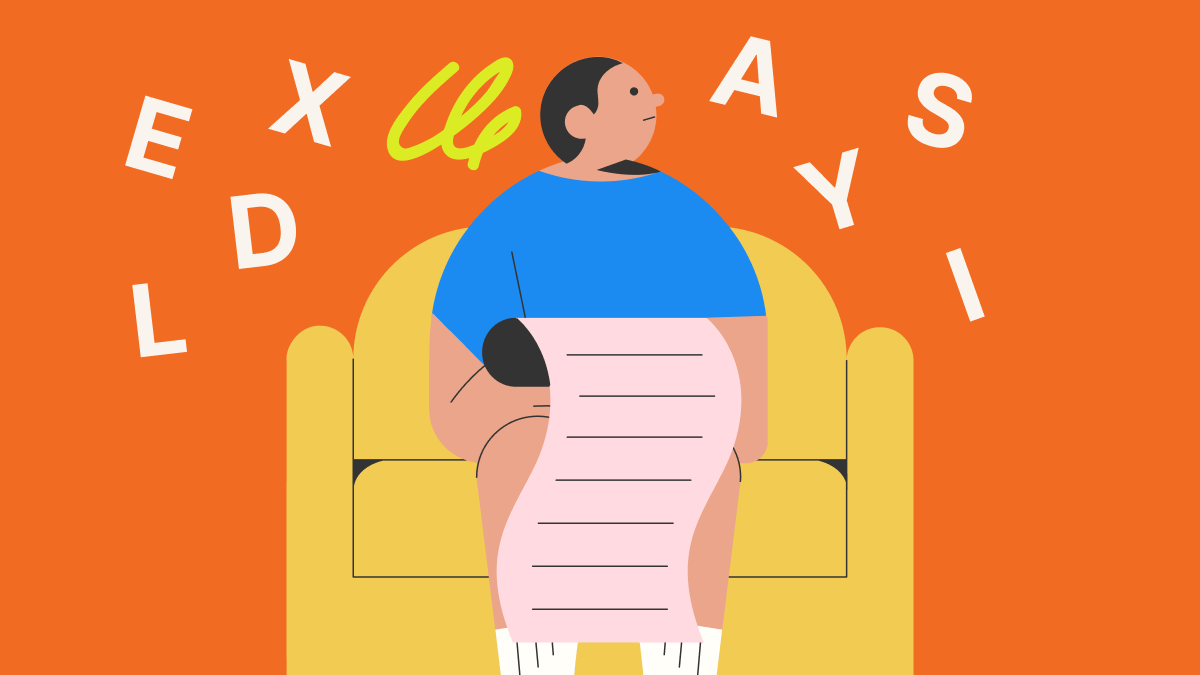Learning disabilities affect more students in Singapore than we might realise. As of 2015, approximately 2.7% of the total student population were reported to have mild learning difficulties or special educational needs in mainstream schools, according to the Ministry of Education (MOE).
For these students, keeping up in a typical classroom can often feel like an uphill climb. Their challenges extend beyond academics, impacting everyday tasks and social connections. However, timely support from family, healthcare providers, and educational systems, can make a world of difference. The journey to accessing that support begins with a crucial first step: a proper diagnosis.
What are learning disabilities?
Learning disabilities are technically known as Specific Learning Disorders (SLDs) in the Diagnostic Statistical Manual, Fifth Edition (DSM-5)—a diagnostic guide used by healthcare professionals. These neurodevelopmental conditions are often identified during early school years but, in some cases, may not come to light until adulthood.
SLDs are marked by persistent difficulties in at least one of three critical areas: reading, written expression, and math. Let’s explore these in more detail:
1. Impairment in reading (Dyslexia)
Dyslexia is one of the most common learning disabilities, affecting approximately 5 to 15% of school-age children and accounting for 80% of all learning disorders. Likewise, in Singapore, students with dyslexia form the largest group among those with learning difficulties or mild special educational needs.
Students with dyslexia might struggle with:
- Word reading accuracy: Struggling to sound out words correctly or mix up similar-sounding words.
- Reading rate or fluency: Reading much slower than their peers or skipping words while reading aloud.
- Reading comprehension: Having difficulty understanding or remembering what they’ve read.
(Note: If you’re concerned about your child’s reading difficulties, start by speaking with their pediatrician or family healthcare provider. To rule out other issues, they may refer your child to specialists such as an ophthalmologist, audiologist, neurologist, neuropsychologist, or developmental pediatrician.)
2. Impairment in written expression (Dysgraphia)
Dysgraphia affects writing skills, leading to persistent struggles with written expression. Students with dysgraphia might face:
- Spelling accuracy: Frequently misspelling common or simple words.
- Grammar and punctuation accuracy: Misusing punctuation or constructing incomplete sentences.
- Clarity or organisation of written expression: Producing written work that is disorganised or hard to follow.
3. Impairment in mathematics (Dyscalculia)
Dyscalculia affects mathematical abilities. Students with dyscalculia may encounter issues such as:
- Number sense: Difficulty understanding numbers, their value, or how they relate to one another.
- Memorisation of arithmetic facts: Struggling to recall basic math facts like multiplication tables.
- Accurate or fluent calculation: Making frequent errors or taking longer than peers to solve problems.
- Accurate math reasoning: Finding it challenging to apply mathematical concepts to real-world problems or word problems.
Other conditions that may impact learning
While SLDs focus on challenges with reading, writing, and math, other conditions outside this category can also affect a child’s ability to learn effectively. These include:
- Dyspraxia: Dyspraxia, also known as developmental coordination disorder, impacts fine and gross motor skills, making tasks like writing, cutting with scissors, or tying shoelaces challenging. Children with dyspraxia may struggle with writing assignments, organising their materials, or participating in physical education.
- Auditory Processing Disorder (APD): APD affects how the brain processes sounds, making it difficult for a child to distinguish similar-sounding words or follow verbal instructions, especially in noisy environments. This can lead to difficulties with reading, spelling, and comprehending spoken language.
- Visual Processing Disorder: This condition involves difficulties in interpreting visual information. Children with visual processing issues might struggle to differentiate shapes, letters, or numbers, impacting their ability to read, write, or solve math problems.
- Attention Deficit Hyperactivity Disorder (ADHD): ADHD is characterised by inattention, hyperactivity, and/or impulsivity. Children with ADHD may struggle to focus on tasks, follow instructions, or stay organised. These challenges can affect every aspect of learning, from submitting assignments to participating in group work.
- Autism Spectrum Disorder (ASD): ASD is a developmental condition that can affect communication, social interaction, and behaviour. Children on the spectrum may have unique learning needs, including challenges with language comprehension, adapting to changes in routine, or understanding abstract concepts.
Does my child have a learning disability?
How can you tell if your child is simply a slower learner or if they have a SLD?
For an SLD diagnosis, at least one of the following symptoms must persist for six months or longer:
- Inaccurate or slow and effortful word reading
- Difficulty understanding the meaning of what is read
- Difficulties with spelling
- Difficulties with written expression
- Difficulties mastering number sense, number facts, or calculation
- Difficulties with mathematical reasoning
Additionally, to confirm an SLD diagnosis, these learning difficulties must:
- Lead to academic skills that are noticeably below what is expected for the child’s age, interfering with schoolwork and everyday activities.
- Begin during school years, even if they only become apparent later when academic demands increase (e.g., timed tests, complex writing assignments, or heavy workloads).
- Not be explained by other factors, such as intellectual disabilities, uncorrected vision or hearing problems, neurological or mental health conditions, language barriers, or inadequate educational opportunities.
If your child’s struggles seem to match these criteria, it’s natural to be concerned. However, it’s important not to jump to conclusions or attempt to self-diagnose. Instead, reaching out to a healthcare professional can provide a proper assessment.
How learning disabilities are diagnosed
In Singapore, only qualified clinical psychologists and psychiatrists are authorised to diagnose mental health conditions, including SLDs. When assessing whether your child or adolescent has a learning disability, clinicians will consider several factors:
- History: This includes your child’s developmental, medical, family, and educational background.
- School Reports: Academic performance, along with observations from teachers, can provide important insights into your child’s learning challenges.
- Psychoeducational Assessments: To evaluate the affected academic skills, clinicians may use standardised achievement tests and comprehensive clinical assessments.
If a learning disability is diagnosed, your clinician will also determine its severity:
| Level | Description |
| Mild | Some difficulties with learning in one or two academic areas, but may be able to compensate with appropriate accommodations or support services. |
| Moderate | Significant difficulties with learning, requiring specialised teaching and some accommodations or supportive services at school, in the workplace, or at home to complete tasks accurately and efficiently. |
| Severe | Severe difficulties with learning, affecting several academic areas and requiring ongoing intensive specialized teaching for most of the school years. Even with accommodations, an individual with a severe SLD may not be able to perform academic tasks with efficiency. |
How learning disabilities are managed
Managing a learning disability involves a combination of school support, specialist interventions, and emotional support.
1. School support
In Singapore, mainstream schools provide a range of support systems to assist students with special educational needs, including conditions like Attention Deficit Hyperactivity Disorder (ADHD), dyslexia, hearing loss, mild Autism Spectrum Disorder (ASD), physical impairments, and visual impairments.
These include interventions and programmes such as:
- Learning Support Programme (LSP): For Primary 1 and 2 students needing extra help with English.
- Learning Support for Mathematics (LSM) Programme: For Primary 1 to 4 students requiring additional assistance with math.
- School-based Dyslexia Remediation Programme: Available for Primary 3 and 4 students with dyslexia.
- Main Literacy Programme: MOE-subsidized program for dyslexic students at other grade levels, conducted by the Dyslexia Association of Singapore.
Additionally, students with special educational needs can benefit from specialised provisions such as:
- Access arrangements during national exams, such as extra time or larger fonts
- Assistive technology devices, including frequency modulation equipment, text-to-speech software, and magnifiers for students with hearing, visual, or physical impairments.
Learn more about school support for students with learning disabilities here.
2. Specialist interventions
In addition to school support, some students may need specialized interventions to address challenges beyond learning, such as therapy or other forms of care. Speech and language therapists, for instance, may work with a child who has difficulty pronouncing words or understanding complex instructions, helping them communicate more effectively.
While schools can refer students to allied health professionals, like occupational or speech and language therapists, parents can also take an active role in seeking support. The sooner your child receives the help they need, the greater the positive impact on their development.
3. Counselling and psychotherapy
When addressing learning disabilities, parents may focus on helping your child catch up academically and keep pace in school. But it’s just as important to pay attention to the emotional and behavioural challenges that often come with SLDs. After all, it’s well known that conditions like anxiety, depression, and conduct disorders often go hand-in-hand with learning disabilities, affecting your child’s overall wellbeing.
Counselling and psychotherapy can provide a safe space for children and adolescents to express their emotions, build self-esteem, and learn coping strategies. For example, a counsellor or psychotherapist might help them manage anxiety related to schoolwork, or address feelings of isolation that may arise from SLDs.
Manage learning disabilities at Intellect Clinic
With early diagnosis and emotional support, children and adolescents can access the resources they need to build resilience and thrive academically and personally.
At Intellect Clinic, our team is committed to supporting you and your child in managing SLDs confidently. Our learning disability assessments are carried out by qualified clinical psychologists, who also provide counseling services at a rate of $240 for a 50-minute session. Alternatively, our counsellors offer counseling sessions at $160 per session. We offer convenient appointments at our clinics in:
- Marina One
- Dhoby Gaut
- Tanjong Pagar
- Woodleigh
- Tembeling








